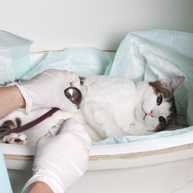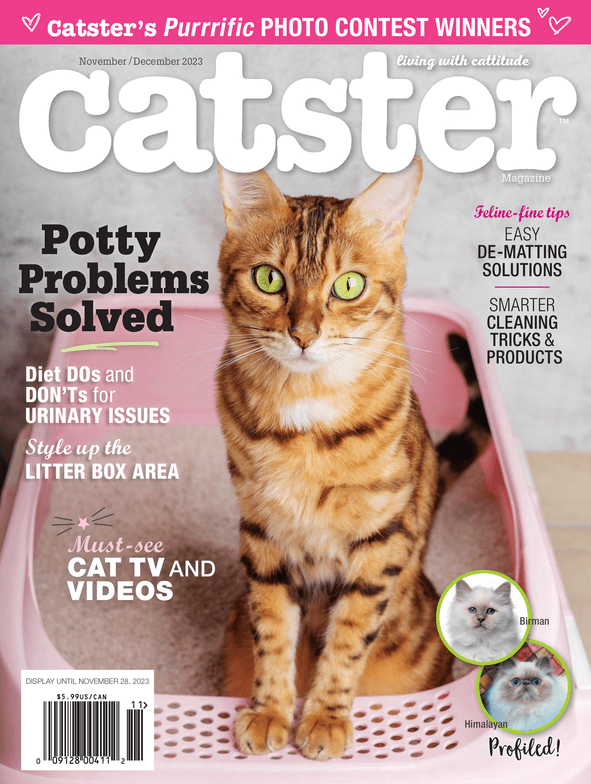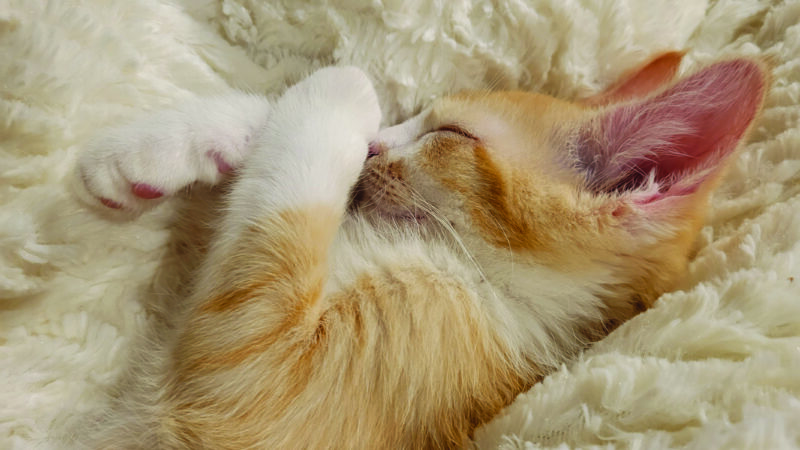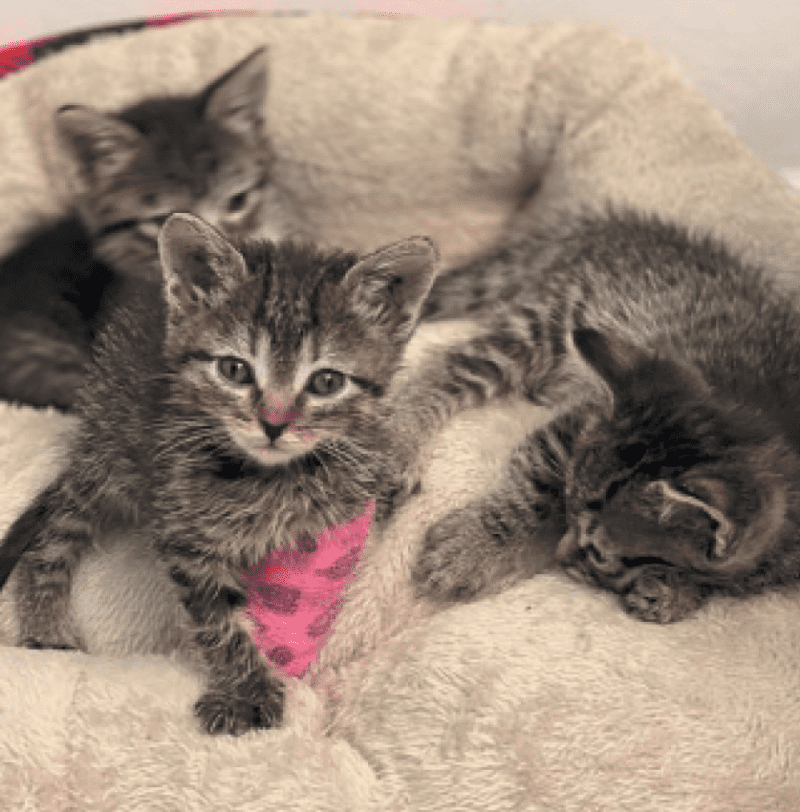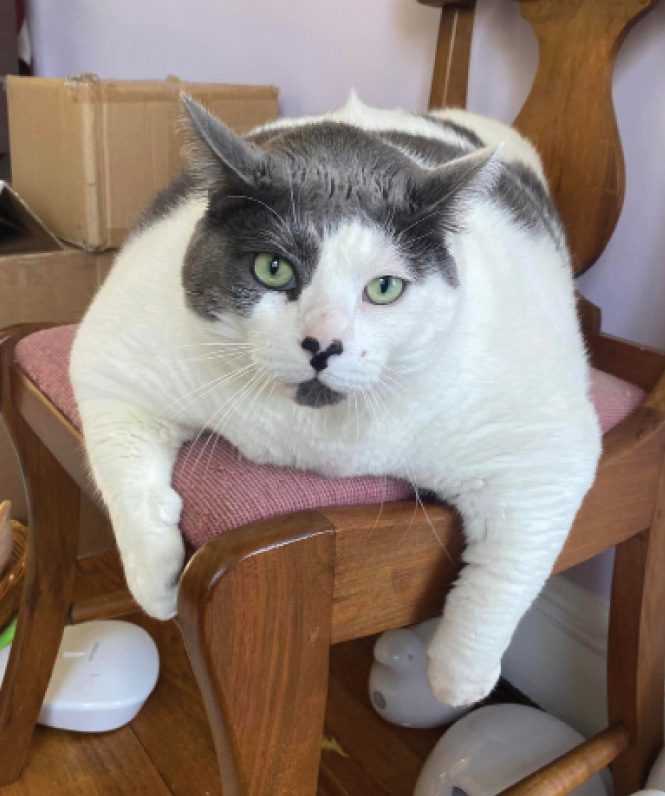My cat was rescued at about 9 months old from a lumber yard. When I took her in, she went blind within a few months. The vet specialist said she had severe retinal disease and nothing could be done.
When she went blind, she also gained a large amount of weight. In December, she lost weight. In the last eight weeks, she started losing again. In the last two weeks, she started refusing food. When I took her to the vet, I was proposed over $400 in tests, which was too much. So we did a blood test which showed stage 5 kidney failure. They tested her blood sugar and it was normal. The vet said it could be an infection or cancer. So she gave me Zeniquin.
But I looked up this med, and it is the one that causes blindness. My cat is blind already, with a slight ability to see large objects and dark/light. I don’t want to further hurt her eyes. Should I got to another vet for an alternate medication?
Peggy
Your question has brought up a bunch of thoughts. Let me start with a semantic matter. Veterinary medicine has undergone a continuous and disturbing trend toward ambiguous nomenclature during my career. We have grade II patellar luxations, stage IV periodontal disease, and stage 5 kidney disease. Here is the problem: These mean nothing out of context. Is the kidney disease stage 5 out of 5 (in which case it’s severe), or stage 5 out of 100 (mild)? I’m presuming that it’s severe, but in fact I don’t know because there is not a universal measuring system.

Different veterinary schools teach different systems in different parts of the country. For instance, some veterinary students are taught to grade body weight on a scale of 1 (emaciated) to 9 (morbidly obese). Others use a 5-point scale. I frequently see veterinary records that state “Body condition score is 5.” This information is useless unless the records also state the scale. Five is perfect on the first scale, and it’s morbidly obese on the second.
The attempt to quantify every sort of pathology using a numeric scale is nothing but pseudoscience. Ivory-tower types like to use numbers where words such as “mild,” “moderate,” and “severe” are unambiguous and convey every bit as much meaning. My favorite example is the infamous and ridiculous fecal scoring chart. Open the link if you dare — but what you will see cannot be unseen.
Back to your question: Although I don’t know what stage 5 kidney disease is, I’ll assume that it’s severe since your cat is showing symptoms — profound weight loss and refusing food — of severe kidney disease.
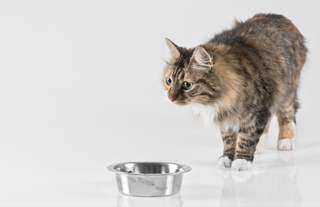 And that brings us to those $400 in tests. With experience, vets should develop intuition about pets’ health. Your cat’s problems sound like a textbook case of kidney failure. However, good vets also should learn that intuition isn’t perfect — your cat’s problems also sound quite a bit like diabetes, thyroid disease, and lymphoma. It is not possible to diagnose a sick animal without tests, and any vet who tries to do so runs a great risk of misdiagnosis.
And that brings us to those $400 in tests. With experience, vets should develop intuition about pets’ health. Your cat’s problems sound like a textbook case of kidney failure. However, good vets also should learn that intuition isn’t perfect — your cat’s problems also sound quite a bit like diabetes, thyroid disease, and lymphoma. It is not possible to diagnose a sick animal without tests, and any vet who tries to do so runs a great risk of misdiagnosis.
It sounds like your vet was quite good at prioritizing the tests and working within your cost constraints — she tested for the two most likely culprits and successfully reached a diagnosis with limited information.
It is very difficult to diagnose an animal in person with limited testing. I can assure you that it is much harder still to do it over the Internet. I therefore can’t challenge your vet’s decision to prescribe Zeniquin, an antibiotic. However, in my experience the most common cause of kidney failure in cats, regardless of age, is chronic degenerative change. Over my career, cancer and infections have been less common.
Your cat’s relatively early onset of kidney failure may be linked to the blindness. The severe and inexplicable retinal disease might have been linked to an infection or other insult that your cat suffered in the uterus or as a newborn. This could also have affected the kidneys.
Whether the blindness and the kidney failure are linked, I generally recommend fluid therapy (injections of balanced electrolyte solutions) as the most effective treatment for kidney disease in cats.
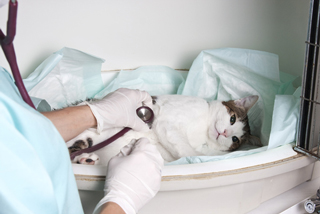
That does not mean that prescribing Zeniquin was necessarily wrong. Zeniquin is related to another medication (Baytril) that is linked to blindness in cats. However, Zeniquin appears to be much less likely to cause eye problems and it is generally considered safe for feline companions. If your vet had reason to believe that a kidney infection was present, then Zeniquin was completely appropriate.
I am not sure that an alternative medication would work any better. In fact, there is a sad chance that no medication will solve the problem. Most cases of kidney failure are progressive and irreversible. Administration of fluids can help reduce the symptoms, but only a kidney transplant (which is expensive and not very practical) can actually cure the disease.

